How to Start a Used Oil Recycling Business: Costs & ROI
Used oil recycling plays an integral role in environmental sustainability by eliminating hazardous waste from polluting soil and water supplies. With increasing regulations surrounding waste disposal and an ever-increasing need for refined oil products, launching an eco-friendly used oil recycling business could prove a highly lucrative and eco-friendly venture.
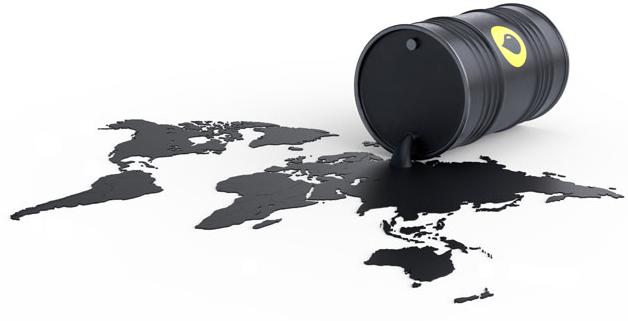
Overview of the Used Oil Recycling Industry
The used oil recycling industry is an invaluable service that converts waste oil into valuable reusable products while protecting the environment. Millions of gallons of motor oil, industrial lubricants, and hydraulic fluids are dumped every year without proper disposal, creating potential pollution risks to water resources and soil, while conserving natural resources by decreasing virgin oil production needs.
Government regulations around the world place strict restrictions on waste oil disposal, creating an ongoing need for compliant recycling services that generate revenue through:
- Collection services provide businesses with safe oil pickup at a fee.
- Re-refining (converting waste oil into base lubricants, fuels, or industrial feedstocks).
- Byproduct Sales (repurposing used oil into asphalt additives, mold release agents, or synthetic fuels).
Market growth is being propelled by environmental regulations mandating proper waste oil disposal, cost savings for industries switching over from virgin oil, corporate sustainability goals urging businesses toward eco-friendly disposal methods, and cost reduction among users who repurpose refined oil instead of virgin.
Due to increasing automotive and industrial activity, used oil recycling offers great potential profitability while contributing to circular economies. Entrepreneurs entering this space may benefit from long-term demand, government incentives, and an increasing focus on sustainable waste solutions.
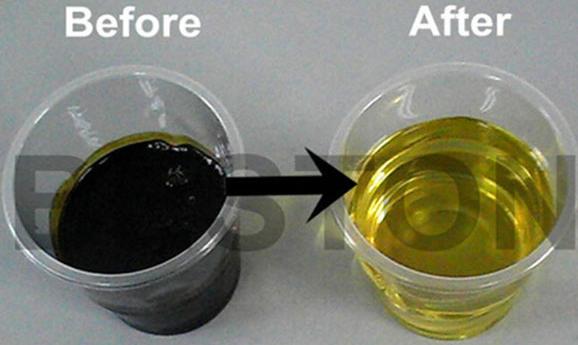
Cost and ROI of Setting Up a Used Oil Recycling Business
Starting a used oil recycling business requires significant initial capital, yet can yield lucrative long-term rewards, due to environmental regulations and demand for recycled oil products. Below is an outline of costs and potential profitability.
Initial Investment Cost

The following table can be used as a reference for the initial investment of waste oil recycling equipment. The specific situation varies according to needs:
| Expense Category | Estimated Cost Range(USD) |
| Business Registration & Permits | 5,000–20,000 |
| Facility (Lease or Purchase) | 50,000–500,000 |
| Collection Equipment | 100,000–300,000 |
| Recycling Machinery | 200,000–1,000,000+ |
| Labor & Operational Costs | 50,000–150,000/year |
| Marketing & Logistics | 10,000–50,000 |
| Miscellaneous (Insurance, Safety Gear, etc.) | 10,000–30,000 |
| Total Estimated Startup Cost | 425,000–2,050,000+ |
Potential Revenue & ROI
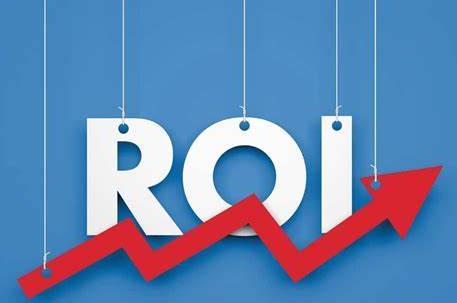
- Primary Revenue Streams
- Collection Fees: Charge businesses such as auto shops or factories 0.50-2 per gallon to collect oil for pickup.
- Recycled Oil Sales: Sell processed oil back to refineries, power plants or industrial users for 3-8 per gallon as recycled product.
- Byproduct Sales: Make money selling asphalt additives, industrial fuels or lubricant base oils as byproduct sales.
- Revenue Projections (Annual Estimates)
| Business Scale | Oil Processed (Gallons/Year) | Estimated Revenue |
| Small (Collection Only) | 500,000 – 1M | 250,000–250,000–1M |
| Medium (Basic Processing) | 1M – 5M | 1M–1M–4M |
| Large (Full Re-refining) | 5M+ | $5M+ |
3. Profit Margin and Return On Invest (ROI).
- Gross Profit Margins: 30% to 50% for refined oil sales (and potentially even higher for sales of recycled refinery oil).
- Breakeven Point: On average 2-5 years, depending upon efficiency and market demand.
- Long-Term Return On Investment (ROI): Businesses can see 20-44% returns annually after scaling.
While the initial investment is substantial, a well-managed used oil recycling business can deliver strong returns while contributing to environmental sustainability. By starting small (collection-only) and gradually expanding into processing, you can minimize risk and maximize profitability.
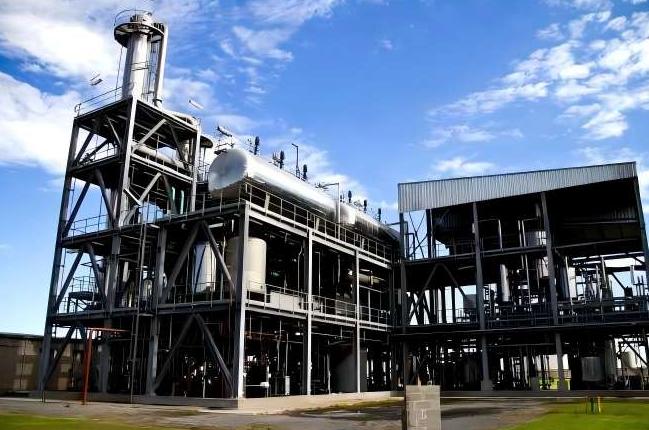
Main Steps Setting Up Your Used Oil Recycling Business
Starting a used oil recycling business involves extensive planning, compliance with environmental regulations and investment in equipment and logistics. Below is an outline of key stages involved in successfully launching such an endeavor.
Conduct Market Research & Develop a Business Plan
Before investing, analyze the demand and competition in your target market.
- Identify Suppliers: Contact auto repair shops, manufacturing plants, and fleet operators to assess their used oil disposal needs.
- Study Regulations: Research federal (EPA), state, and local laws on waste oil collection, transportation, and recycling.
- Define Your Business Model: Decide whether you’ll focus only on collection & resale or invest in full-scale recycling & refining.
- Financial Projections: Estimate startup costs, operational expenses, and potential revenue streams (collection fees, recycled oil sales, byproducts).
A solid business plan will help secure funding and guide your operations.
Obtain Necessary Licenses & Permits
Recycled oil recycling is a tightly-regulated industry; any breaches could lead to fines or closure.
- Register Your Business: Establish an LLC or Corporation for liability protection.
- Environmental Permits: Apply for both federal and state hazardous waste handling permits to begin handling of toxic materials responsibly.
- Transportation Licenses: When collecting oil from multiple locations, ensure you obtain a hazardous waste transporter license in each case.
- Local Zoning Approvals: Make sure that your facility satisfies industrial zoning and environmental safety standards before starting construction.
Consult an environmental lawyer or regulatory specialist in order to avoid legal pitfalls.
Secure Funding & Set Up Your Used Oil Recycling Machine
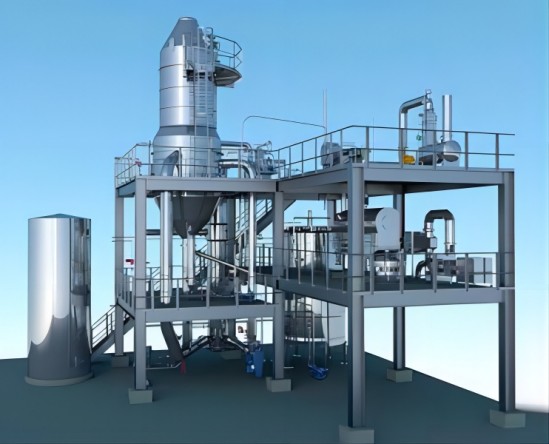
Starting a used oil recycling business requires significant capital. Explore funding options such as small business loans, government grants, or private investors. Once financing is secured, choose a facility location close to oil suppliers to minimize transportation costs. The site must have proper drainage, spill containment systems, and storage tanks that meet regulatory standards. Invest in essential used oil recycling equipment, including oil collection trucks, filtration systems, and re-refining machinery, if you plan to process the oil yourself.
Build a Reliable Supply Chain & Sales Network
Your success as an oil business hinges on steady oil supplies and reliable buyers. Secure long-term partnerships with local auto garages, factories, and transportation companies for collecting used oil–offer competitive pickup rates to build long-term partnerships–before connecting with refineries, asphalt plants, or industrial fuel buyers who purchase recycled oil for sale. Building strong B2B relationships ensure steady cash flow as you expand operations over time, while offering additional services like filter recycling as additional revenue sources.
Follow these key steps to establish a profitable and long-term successful used oil recycling business. With environmental regulations tightening further and increased demand for recycled oil products, there’s immense growth potential within this industry. Lay a strong foundation before expanding in stages for long-term success.
Want to Get Started?

Starting a recycled oil company requires the right equipment as well as compliance with regulations and a dependable supply chain. To ensure the efficiency and profit by partnering with a reputable manufacturer can provide you with an advantage.
Purepath is a top supplier of high-quality waste oil recycling facilities, providing innovative options for purifying oil, refining, and distillation. Purepath’s systems are designed to achieve maximal efficiency, which helps businesses convert used oil into useful reusable products, in accordance with environmental regulations.
Why Choose Purepath?
- Our recycling plants ensure high oil recovery rates with low energy consumption.
- Whether you require a small-scale set-up or a complete refining process, Purepath tailors equipment to your requirements.
- Safety and compliance Our equipment is compliant with international environmental standards, reducing the risk of operating.
By choosing Purepath, you invest in a sustainable, profitable future. Visit our website today to explore their solutions!







